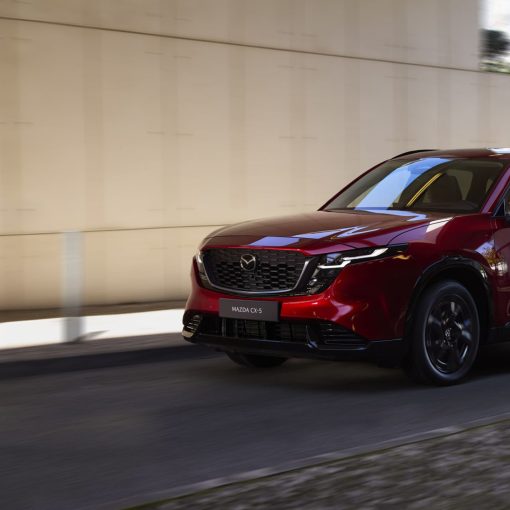If you’re thinking about leasing a Ford van, you’ve come to the right place. This ultimate guide to Ford van leasing will walk you through the entire process, from understanding the benefits of leasing to comparing different models and packages. Whether you’re a small business owner needing a reliable work vehicle or a family in need of a spacious, comfortable ride, Ford vans are versatile and offer outstanding performance for every need. Let’s dive into the world of Ford van leasing and explore why it might be the best option for you.
Advantages of Leasing a Ford Van
Leasing a Ford van offers many benefits, especially for individuals and businesses seeking flexibility and cost-efficiency. One of the primary advantages is the lower initial cost. When you lease, you typically pay a smaller down payment compared to buying outright, leaving you with more cash to handle other expenses or investments. This is particularly useful for small business owners who need to manage their finances carefully while ensuring access to reliable transportation.
In addition to the lower upfront costs, leasing offers flexibility. Lease agreements typically last between two to four years, giving you the opportunity to drive a new van without committing to long-term ownership. At the end of the lease, you have options: return the van, lease a newer model, or even purchase the van at a predetermined price. This flexibility is highly beneficial, especially for businesses in industries where vehicle needs evolve quickly, allowing them to adapt their fleet without the burden of ownership.
Another advantage of leasing is access to the latest models. Ford is well-known for its innovation and commitment to safety. Leasing allows you to drive a new vehicle equipped with advanced technology and features without worrying about depreciation. Furthermore, many lease agreements include maintenance packages, which can further reduce your vehicle expenses by covering regular servicing, repairs, and other upkeep costs. This means fewer surprises, making the process hassle-free.
Types of Ford Vans Available for Leasing
Ford offers a comprehensive range of vans that cater to a variety of needs. Whether you’re a small business owner, a delivery driver, or someone who simply needs a larger family vehicle, there is a Ford van for you. Some of the most popular models for leasing include:
-
Ford Transit: One of the most versatile options available, the Ford Transit is a top choice for businesses and families alike. With various configurations—including different lengths, heights, and weight capacities—the Ford Transit can be tailored to meet a wide range of needs. It’s perfect for transporting goods or people and comes in cargo, passenger, and cutaway configurations. Whether you need a van for delivery or for passenger transport, the Ford Transit offers flexibility and functionality.
-
Ford Transit Connect: If you’re looking for a smaller, more maneuverable van, the Ford Transit Connect might be ideal. It’s perfect for navigating urban environments where parking and tight spaces are a concern. The Transit Connect is designed for efficiency, offering impressive fuel economy and a comfortable driving experience. It’s especially popular among small business owners who need a reliable vehicle for deliveries or service calls.
-
Ford E-Series Vans: The Ford E-Series is another excellent option for those who require a combination of utility and comfort. Although slightly older in design, the E-Series vans offer powerful engine options and are known for their reliability. They are great for businesses that need a robust vehicle capable of handling heavy loads and demanding work conditions.
How Does Ford Van Leasing Work?
Leasing a Ford van typically involves entering into a contractual agreement with a dealership or leasing company. The lease term typically ranges from 24 to 60 months, depending on your needs. Once the terms are agreed upon, you’ll negotiate the mileage allowance, which determines the number of miles you’re allowed to drive each year without incurring additional fees. Standard mileage limits typically range between 10,000 to 15,000 miles per year, but this can vary based on your specific needs.
After agreeing to the lease terms, you’ll make an initial payment, known as the down payment or capitalized cost reduction. Following this, you will make monthly payments that cover the vehicle’s depreciation, interest, and any applicable fees. Over the course of the lease, you will be responsible for maintaining the van and keeping it in good condition. Failure to do so could result in additional charges when the lease term ends.
At the end of the lease, you will return the van to the dealership or leasing company. The vehicle will be inspected for any damage, and the mileage will be checked to ensure you haven’t exceeded the limit. If the van is in good condition, you may return it without additional fees. However, if the vehicle shows signs of excessive wear or if you’ve exceeded the mileage limit, you may be charged additional fees. You also have the option to purchase the van at its residual value, which could be an attractive deal if the vehicle has retained its value during the lease term.
Factors to Consider Before Leasing a Ford Van
Before jumping into a lease agreement, it’s essential to evaluate several key factors that could impact your decision. Here are some things to keep in mind:
-
Driving Needs: How much do you plan to drive? Ensure that the lease’s mileage limits align with your usage. Exceeding the mileage limit could lead to costly overage charges, so it’s essential to estimate your yearly mileage accurately.
-
Budget: Leasing often results in lower monthly payments compared to purchasing a vehicle outright. However, it’s important to evaluate the total cost of leasing, including the down payment, monthly payments, insurance, maintenance, and any potential fees for excess mileage or wear and tear. Make sure the monthly payments fit comfortably within your budget.
-
Long-Term Vehicle Needs: Leasing is a great option if you prefer to drive newer models with the latest technology and safety features. However, if you plan to keep the vehicle for a longer period or anticipate needing a van for more than just a few years, purchasing may be the better option.
Leasing vs. Buying a Ford Van: Which Is Right for You?
When deciding between leasing and buying, the right choice depends on your specific needs and financial situation. Leasing offers lower monthly payments, access to newer models, and flexibility for businesses that need to change their vehicle fleet frequently. It’s ideal for people who prefer driving new cars with the latest features and want to avoid the long-term commitment that comes with ownership.
On the other hand, buying a van allows you to own the vehicle outright, offering more long-term financial benefits. Once the loan is paid off, you no longer have monthly payments, and you can customize your vehicle without restrictions. Buying is a great option for those who plan to keep their vehicle for many years and don’t mind taking on the responsibilities of ownership, such as maintenance and repairs.
How to Get the Best Ford Van Leasing Deals
To ensure you get the best deal, it’s essential to do thorough research and shop around. Here are some tips to help you secure the best Ford van leasing deal:
-
Research Leasing Companies: Compare different leasing companies and their offerings to find the best terms. Don’t be afraid to negotiate the capitalized cost (purchase price) of the van to lower your monthly payments.
-
Look for Promotions: Keep an eye out for special promotions or incentives, especially during the end of the month or quarter when dealerships may be more willing to negotiate.
-
Understand the Fine Print: Pay attention to the lease terms, including mileage limits, maintenance responsibilities, and end-of-lease fees. Make sure the terms align with your needs and that you’re comfortable with the responsibilities outlined in the agreement.
Conclusion
Leasing a Ford van can be an excellent option for those seeking flexibility, lower monthly payments, and access to newer models without the commitment of ownership. However, it’s important to carefully assess your driving needs, budget, and long-term plans before committing to a lease. By researching different models, understanding the terms and conditions, and negotiating the best deal, you can ensure that your Ford van leasing experience is both cost-effective and hassle-free.
Whether you’re looking for a Ford Transit, a more compact Ford Transit Connect, or a Ford E-Series, there’s a Ford van leasing option that can meet your needs. Take your time, weigh your options, and choose the right vehicle for your personal or business needs.




